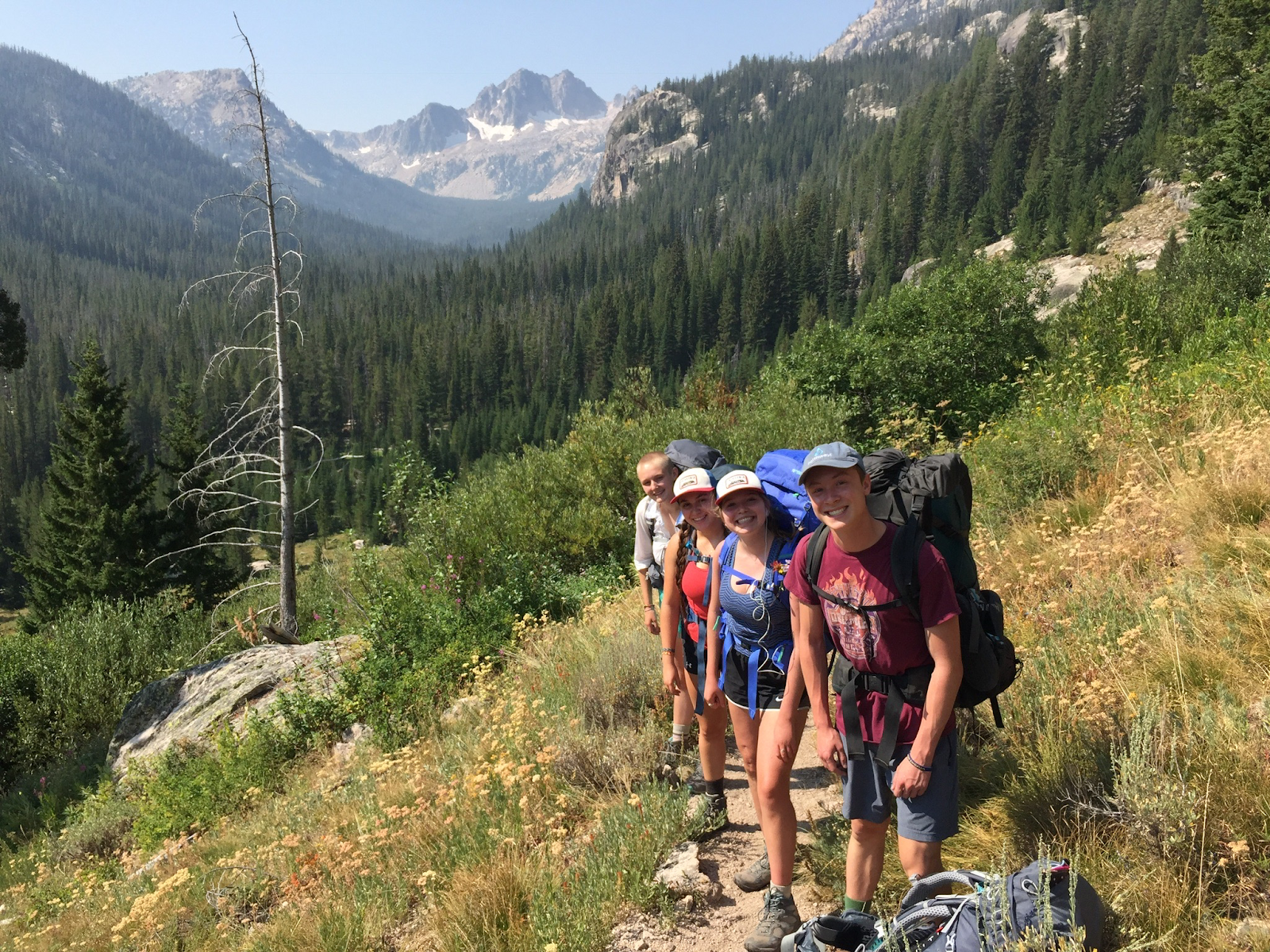CABI: More Than a Place
CABI Teen Backpacking Trip in the Sawtooths, July 2018
Alex--end, left
Alex Swerdloff
The map will tell you Congregation Ahavath Beth Israel is the building that sits on Latah, wedged between a community garden and a cemetery, the building that, I brag to visitors, is the “oldest continuously operating synagogue west of the Mississippi.” But my synagogue has always felt like more than a place to me.
When I think of CABI, I think of sunlit mornings sitting on a pew and Hebrew hymns, but also the kitchen at a church downtown where we served meals to the community, the rainbow stickers from our Pride booth in June that left sticky residue on our cheeks, and the cup of tea that Haya, my Hebrew teacher, would make for me during our weekly lessons at her cat- and sunlight-filled apartment. At CABI I learned that there are many ways of being Jewish, and the synagogue’s community encompasses all of them.
Growing up in a secular household, I often found it difficult to connect to organized religion. It felt too abstract, and sometimes hypocritical. But at CABI, I found a community where spiritual concepts like tzedakah and tikkun olam weren’t just abstract ideas but the foundations of community. I was drawn to CABI in part because of the congregation’s role in the “Add the Words” protests; I was impressed that members of Boise’s Jewish community were so dedicated to their belief in equality for the LGBT community in Idaho that they were willing to be arrested. When I became a part of that community, I learned that, at CABI, social action and community care and spirituality are all connected. And that spirit of inclusiveness extended to me as well. As the daughter of a Jewish father and a Catholic mother I worried that I would be an outsider; instead, I found a community that accepted me unconditionally. When the academic and social stress of high school became too much, CABI became my refuge, reminding me that there was more to life than standardized tests and college applications. In Hebrew school classrooms and Shabbat services, I was surrounded by a diverse, multigenerational community that always had more to teach, challenging me intellectually and spiritually.
Now, I’m a senior in college, and though I only return to CABI when I’m home for winter or summer break, another congregant chided me when I recently referred to myself as a “former” member of CABI. “You are a part of CABI,” she said. Present tense.
I am still a member of CABI. I feel CABI’s teachings when I seek out Jewish groups on campus, when Jewish philosophies of social justice guide me to work for social change in the communities around me, and when I have long conversations with my friends that remind me of late nights with the CABI teen group. CABI isn’t just a place; it’s a feeling, a feeling of connectedness and community. One that I’ll carry with me no matter where life takes me next.


